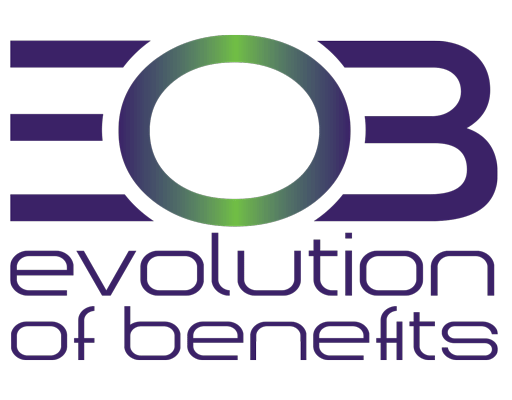Step Away for Safety – flyer

To limit the spread of coronavirus disease 2019 (COVID-19), the government is asking everyone to practice social distancing. This means staying at least 6 feet away from everyone at all times. All people should follow this guidance — not just those experiencing COVID-19 symptoms.
Posted on March 20, 2020 by Evolution of Benefits
About the Families First Coronavirus Response Act

Coronavirus Bill Requiring Paid Employee Leave Signed Into Law
On March 18, 2020, President Trump signed the Families First Coronavirus Response Act (the Act) into law. The Act requires employers to provide paid leave for some employees related to the coronavirus (COVID-19) pandemic, among other measures. The leave provisions of the Act take effect no later than 15 days after it is signed by the president.
Emergency Paid Sick Leave
The Act requires 80 hours of paid sick leave for government workers and employees of companies with fewer than 500 employees. Leave must be made available to workers who are symptomatic or are under an order or advice to quarantine or self-isolate, who have to care for a family member under such an order or advice, or who have a child whose school or child care provider or facility has closed or is unavailable due to the coronavirus.
Future regulations may exempt small businesses with fewer than 50 employees from the paid sick leave requirement. Health care providers and emergency responders may be excluded from both types of leave benefits.
Emergency Family and Medical Leave Act
The Act provides FMLA rights for some employees of companies with fewer than 500 employees, requiring partially paid leave after 10 days when an employee is unable to work or telework due to school or child care closures related to the coronavirus.
Other Provisions
The Act provides funding for economic assistance and requires health plans to cover COVID-19 testing at no charge. A refundable tax credit for employers that provide paid leave benefits as required by the Act is also included. The U.S. Treasury is expected to use its regulatory authority to advance funds to some small businesses to cover the cost of providing paid sick leave.
Posted on March 20, 2020 by Evolution of Benefits
Keeping Workplaces, Homes, Schools, and Commercial Spaces Safe


Practice good hygiene
Stop handshaking – use other noncontact methods of greeting
Clean hands at the door and schedule regular hand washing reminders by email
Create habits and reminders to avoid touching their faces and cover coughs and sneezes
Disinfect surfaces like doorknobs, tables, desks, and handrails regularly
Increase ventilation by opening windows or adjusting air conditioning
Be careful with meetings and travel
Use videoconferencing for meetings when possible
When not possible, hold meetings in open, well-ventilated spaces
Consider adjusting or postponing large meetings or gatherings
Assess the risks of business travel
Handle food carefully
Limit food sharing
Strengthen health screening for cafeteria staff and their close contacts
Ensure cafeteria staff and their close contacts practice strict hygiene
Stay home if…
They are feeling sick
They have a sick family member in their home
View and download Keeping Homes, Workplaces, Schools Safe document
Posted on March 13, 2020 by Evolution of Benefits
IRS Allows HDHPs To Cover Coronavirus Costs

Key Points
- HDHPs can pay for COVID-19 testing and treatment without imposing a deductible.
- As a growing trend, states are directing or encouraging health insurance issuers to cover this testing without any costsharing.
- Employers with HDHPs should consult with their plan’s issuer or benefits administrator regarding their plan’s coverage for COVID-19 testing and treatment.
Posted on March 13, 2020 by Evolution of Benefits
Department of Labor Issues Guidance on COVID-19 and the FMLA


The U.S. Department of Labor has issued Q&As on the federal Family and Medical Leave Act (FMLA) and COVID-19 (the disease caused by the new coronavirus) and other health emergencies. The Q&As explain that under the FMLA, covered employers must provide eligible employees with job-protected, unpaid leave for specified family and medical reasons, which may include the flu where complications arise. Employees on FMLA leave are entitled to the continuation of group health insurance coverage under the same terms as before they took leave.
Posted on March 13, 2020 by Evolution of Benefits
Implementation of Mitigation Strategies for Communities with Local COVID-19 Transmission

This is a 10-page guide with easy-to follow tables and graphics from the Centers for Disease Control, covering Background, Goals, and Guiding Principles, with tables and appendices to help fully clarify factors to consider for implementation of mitigation strategies.
Protect yourself and your community from getting and spreading respiratory illnesses like coronavirus disease 2019. Everyone has a role to play in getting ready and staying healthy.

Posted on March 13, 2020 by Evolution of Benefits
COVID-19 Officially a Pandemic

The World Health Organization (WHO) officially declared COVID-19 a pandemic, increasing the severity from an “outbreak.”
How Far Has COVID-19 Spread?
This announcement comes as more than 120,000 cases of COVID-19 have been reported worldwide, with over 4,000 deaths.
In the United States alone, there have been over 1,000 confirmed cases and at least 30 deaths attributed to COVID-19.
What’s Being Done to Stop It?
At least 114 countries have been affected so far, with some taking drastic steps to contain the disease. Italy is experiencing a nationwide lockdown; China is quarantining entire regions; and Canada is planning to spend billions to fight it.
Experts cannot predict how bad the situation will become, but it’s already shutting down major events and sending the stock markets plummeting. Many schools and universities are extending breaks or holding remote classes only; major festivals like Coachella and SXSW are being canceled; and presidential nominees are canceling events and rallies.
Until the disease gets under control, these disruptions are likely to continue.
What’s Can Employers Do?
Guidance for employers will vary depending on the situation. Many retailers and employers relying on face-to-face interactions will likely be disrupted by both limited customers and sick employees.
Many organizations are considering telecommuting options, such as having employees work from home for extended periods. Employers that don’t have such options are thoroughly communicating best practices for avoiding the disease, like proper handwashing and staying home if sick.
More than 120,000 cases of COVID-19 have been reported worldwide, with over 4,000 deaths. The disease is affecting at least 114 countries.
According to the Centers for Disease Control and Prevention (CDC), the best way to prevent infection is to avoid being exposed to the virus.
Visit cdc.gov for more information about COVID-19 and ways to prevent its spread. Speak with Evolution of Benefits for other resources to help contain the pandemic.
Posted on March 13, 2020 by Evolution of Benefits
March – Live Well, Work Well

Eating Healthy Doesn’t Have to Be Expensive
Eating a well-balanced diet is a key component of living a long, healthy life. Many Americans think that eating healthy means they have to empty their wallets, which isn’t necessarily the truth. Keep the following money-saving tips in mind next time you’re grocery shopping:
View and download the March “Live Well, Work Well” newsletter
Posted on March 2, 2020 by Evolution of Benefits
March HR Brief

- DOL Adopts New Joint Employer Determination Test
The U.S. Department of Labor (DOL) recently announced a new four-factor balancing test to determine whether two or more organizations should be considered “joint employers” under the Fair Labor Standards Act (FLSA). The final rule establishing the new test becomes effective March 16, 2020
- DOL Increases Civil Penalty Amounts for 2020
The DOL recently released its 2020 inflation-adjusted civil monetary penalties that may be assessed on employers for violations of a wide range of federal laws, including:
- • The FLSA;
- • The Employee Retirement Income Security Act (ERISA);
- • The Family and Medical Leave Act (FMLA); and
- • The Occupational Safety and Health Act (OSH Act).
To maintain their deterrent effect, the DOL is required to adjust these penalties for inflation, no later than Jan. 15 of each year. Key penalty increases include the following:
Posted on March 2, 2020 by Evolution of Benefits
March Benefits Buzz

- Supreme Court Declines to Expedite ACA Case
The lower court’s ruling is expected to ultimately be appealed to the Supreme Court, and a final decision is not expected to be made until that time. It is likely that any ruling eliminating the ACA will be stayed pending appeal.
- HHS Increases Civil Penalties for HIPAA Violations
HHS is required to adjust these penalties for inflation each year to improve their effectiveness and maintain their deterrent effect. The new penalty amounts are effective for penalties assessed on or after Jan. 17, 2020.
2020 HIPAA Civil Penalties
HHS may assess civil penalties when it discovers a HIPAA violation. The penalty amount depends on the facts involved.
Posted on March 2, 2020 by Evolution of Benefits
Client and Employee Resources
![]() The more your employees understand your benefit plans the more they become educated, empowered consumers. The programs you provide will also gain an enhanced value.
The more your employees understand your benefit plans the more they become educated, empowered consumers. The programs you provide will also gain an enhanced value.
As your strategic partners in employee benefits, we can provide multiple avenues of ongoing support, including:
- Employee Meetings (English and Spanish)
- Webcasts
- Payroll Stuffers
- Poster Campaigns
- Newsletters
Recent Posts
- ACA Compliance Overview – HHS’ FAQs on Section 1557 Nondiscrimination Final Rule May 17, 2024
- News Brief: U.S. Employers Added 175,000 Jobs in April, Well Below Expectations May 16, 2024
- Benefits and Me: What are Speciality Drug Benefits? May 16, 2024
- Compliance Bulletin – HSA/HDHP Limits Will Increase for 2025 May 15, 2024
- Legal Update: DOL Issues Guidance on AI-Related Wage and Hour Risks May 14, 2024
- Live Well, Work Well – Emotional Self-regulation Strategies for Everyday Life May 14, 2024
- Compliance Bulletin – Preparing for the FTC’s Noncompete Ban May 13, 2024
- Think Well, Be Well: Daily Habits to Boost Mental Health May 11, 2024
- 10 Mental-Health Boosting Habits May 10, 2024
- Mental Health Minute (May) May 9, 2024
Newsletter and Article Categories
E-Verify is a web-based system that allows enrolled employers to confirm the eligibility of their employees to work in the United States. Click the image below to begin.






















